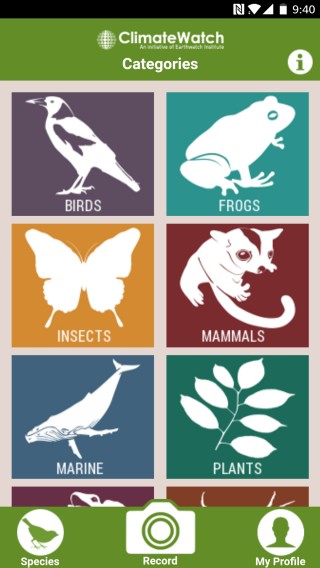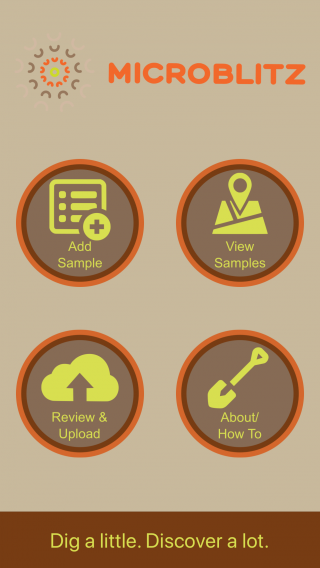Gaia Resources has had the pleasure of working with two great projects over the last few months, both funded through the federal Inspiring Australia Citizen Science Grants initiative.
Still in the development phase, both these projects will be launched in the first quarter of 2018, but we couldn’t resist giving you a sneak peek!
 The Earthwatch Institute is reinvigorating its ClimateWatch network of Australian citizen scientists gathering local, regional and national scale data. It’s great to be back on this project after a long hiatus; back in 2009 we developed the first version of ClimateWatch!
The Earthwatch Institute is reinvigorating its ClimateWatch network of Australian citizen scientists gathering local, regional and national scale data. It’s great to be back on this project after a long hiatus; back in 2009 we developed the first version of ClimateWatch!
Using smartphones, citizen scientists can take images and record behavioural and geographical data of indicator plant and animal species. The validated data becomes publicly available and displayed along with Atlas of Living Australia predicted species distribution models developed by Griffith University’s Biodiversity & Climate Change Virtual Laboratory.
We are working with their team to:
- rework the species and observation data captured,
- incorporate spatial models of predicted species response to climate change,
- rebuild their two smartphone apps, and
- refresh their website design.
 The University of Western Australia’s MicroBlitz project is a citizen science project that engages volunteers in a quest to discover hidden soil biodiversity – and it’s another one that we’ve worked on before, delivering the first version in 2015.
The University of Western Australia’s MicroBlitz project is a citizen science project that engages volunteers in a quest to discover hidden soil biodiversity – and it’s another one that we’ve worked on before, delivering the first version in 2015.
Volunteer citizen scientists collect soil samples that are sent to a UWA laboratory for DNA sequencing, with the aim of producing a map of the microbiome of WA.
The Inspiring Australia grant sees the project revived with:
- great data visualisation for each of the sequenced samples,
- new app technology, and
- a more friendly, informative and usable web site.
Significantly, the MicroBlitz team now joins with the Marshall Centre, headed by Nobel Laureate Prof. Barry Marshall, to develop a ‘One Health’ distance education program, train local trainers and bring the power of STEM education via citizen soil science.
If you’d like to know more about how we can help you with developing a citizen science program, or how a smartphone app could improve your community engagement and scientific data capture, then please leave a comment below – or email me directly via alex.chapman@archive.gaiaresources.com.au. Or, feel free to start a conversation with us via Facebook, Twitter or LinkedIn.
Alex

Comments are closed.